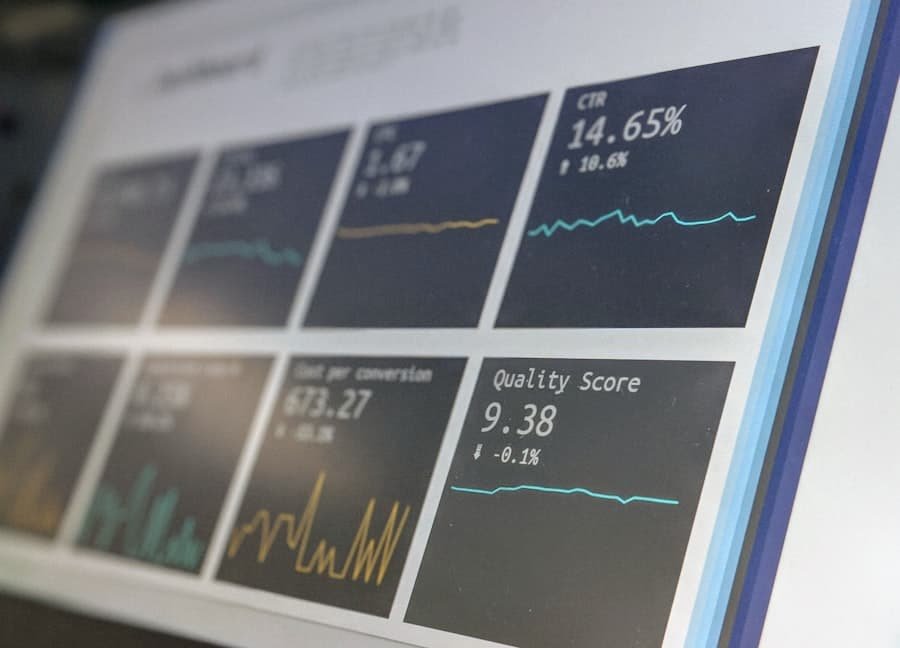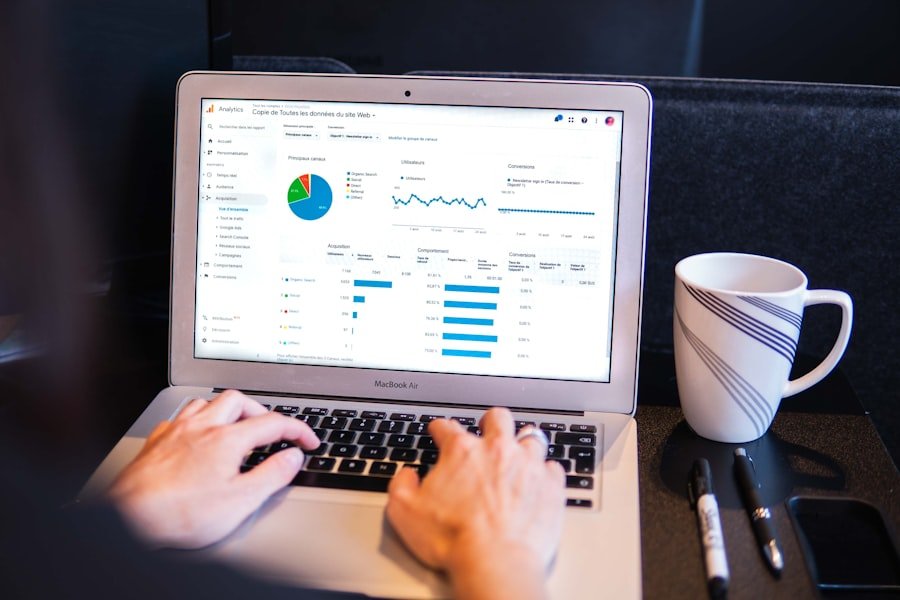Artificial Intelligence (AI) has emerged as a transformative force in the modern economy, reshaping industries and redefining the parameters of productivity and efficiency. The rapid advancement of AI technologies has not only catalysed innovation but has also become a cornerstone for economic growth across the globe. As nations strive to harness the potential of AI, it is evident that its integration into various sectors is poised to drive significant changes in how businesses operate, how consumers interact with products and services, and how economies function at large.
The impact of AI on global economic growth is multifaceted. It encompasses the enhancement of existing processes, the creation of new markets, and the reallocation of resources towards more productive uses. According to a report by PwC, AI could contribute up to $15.7 trillion to the global economy by 2030, underscoring its potential as a key driver of economic expansion.
This growth is not merely a function of increased efficiency; it also involves the development of new business models and the emergence of entirely new industries that leverage AI technologies. As countries invest in AI research and development, they position themselves to reap the benefits of this technological revolution, fostering an environment conducive to sustained economic growth.
Summary
- AI is revolutionising global economic growth by enhancing productivity and efficiency across various industries.
- The integration of AI is creating new job opportunities and the demand for advanced skills in the workforce.
- AI is driving innovation and technological advancements, leading to the development of new products and services.
- International trade and market expansion are being significantly impacted by the adoption of AI technologies.
- AI is playing a crucial role in predictive analysis and decision-making for businesses, leading to more informed strategies and actions.
AI’s Influence on Productivity and Efficiency in Various Industries
AI’s ability to enhance productivity and efficiency is evident across a multitude of industries, from manufacturing to healthcare. In manufacturing, for instance, AI-driven automation has revolutionised production lines, enabling companies to optimise their operations through predictive maintenance and real-time monitoring. By employing machine learning algorithms, manufacturers can analyse vast amounts of data generated by machinery, predicting failures before they occur and thereby minimising downtime.
This not only leads to cost savings but also enhances overall productivity, allowing firms to meet consumer demand more effectively. In the healthcare sector, AI applications are transforming patient care and operational efficiency. Machine learning algorithms can analyse medical images with remarkable accuracy, assisting radiologists in diagnosing conditions such as cancer at earlier stages.
Furthermore, AI-powered chatbots are streamlining patient interactions by providing immediate responses to inquiries and scheduling appointments, thus freeing up healthcare professionals to focus on more complex tasks. The integration of AI in healthcare not only improves patient outcomes but also optimises resource allocation within hospitals, ultimately leading to a more efficient healthcare system.
The Role of AI in Creating New Job Opportunities and Skills

While there are concerns regarding job displacement due to automation, AI also plays a crucial role in creating new job opportunities and necessitating the development of new skills. As businesses adopt AI technologies, there is an increasing demand for professionals who can design, implement, and maintain these systems. Roles such as data scientists, machine learning engineers, and AI ethicists are becoming increasingly vital in the workforce.
This shift highlights the need for educational institutions to adapt their curricula to prepare students for the evolving job market. Moreover, AI can augment human capabilities rather than replace them. For example, in fields such as finance and marketing, AI tools can analyse consumer behaviour and market trends at an unprecedented scale, enabling professionals to make more informed decisions.
This collaboration between humans and machines fosters a new paradigm where workers can focus on strategic thinking and creative problem-solving while leveraging AI for data-driven insights. As a result, the workforce is evolving, with an emphasis on continuous learning and adaptability becoming essential traits for success in an AI-driven economy.
AI’s Contribution to Innovation and Technological Advancements
The integration of AI into various sectors has catalysed a wave of innovation that is reshaping technological landscapes. Companies are increasingly leveraging AI to develop new products and services that were previously unimaginable. For instance, in the automotive industry, the advent of autonomous vehicles represents a significant leap forward in transportation technology.
These vehicles rely on sophisticated AI algorithms that process data from sensors and cameras in real-time, enabling them to navigate complex environments safely. Furthermore, AI is driving advancements in fields such as biotechnology and pharmaceuticals. Machine learning models are being used to accelerate drug discovery processes by predicting how different compounds will interact with biological systems.
This not only reduces the time required for bringing new drugs to market but also lowers costs associated with research and development. The ability to harness vast datasets for predictive modelling is revolutionising how innovations are conceived and developed, leading to breakthroughs that have the potential to improve quality of life on a global scale.
AI’s Impact on International Trade and Market Expansion
AI’s influence extends beyond individual industries; it is also reshaping international trade dynamics and market expansion strategies. By enabling companies to analyse global market trends and consumer preferences more effectively, AI facilitates informed decision-making regarding product launches and market entry strategies. Businesses can leverage predictive analytics to identify emerging markets with high growth potential, allowing them to allocate resources strategically and optimise their supply chains.
Moreover, AI-driven platforms are enhancing cross-border trade by streamlining logistics and customs processes. For instance, machine learning algorithms can predict shipping delays based on historical data, enabling companies to adjust their supply chain operations proactively. This level of agility not only reduces costs but also enhances customer satisfaction by ensuring timely delivery of goods.
As companies become more adept at utilising AI for international trade, they are better positioned to compete in an increasingly interconnected global economy.
AI’s Role in Predictive Analysis and Decision Making for Businesses

The ability of AI to perform predictive analysis is transforming decision-making processes within organisations. By analysing historical data and identifying patterns, AI systems can provide insights that inform strategic planning and operational decisions. For example, retailers are using AI algorithms to forecast inventory needs based on seasonal trends and consumer behaviour, minimising excess stock while ensuring product availability during peak demand periods.
In finance, predictive analytics powered by AI is revolutionising risk assessment and investment strategies. Financial institutions are employing machine learning models to analyse market data in real-time, allowing them to identify potential risks and opportunities with greater accuracy than traditional methods. This capability enables investors to make more informed decisions regarding asset allocation and portfolio management, ultimately leading to improved financial performance.
AI’s Influence on Financial Markets and Investment Strategies
The integration of AI into financial markets has led to significant changes in investment strategies and trading practices. Algorithmic trading systems powered by AI can execute trades at speeds far beyond human capabilities, analysing vast amounts of market data in real-time to identify profitable opportunities. This has resulted in increased market efficiency but has also raised concerns about volatility and the potential for market manipulation.
Moreover, AI is enhancing risk management practices within financial institutions. By employing advanced analytics, firms can assess credit risk more accurately by analysing a broader range of data points beyond traditional credit scores. This allows lenders to make more informed decisions regarding loan approvals while minimising default risks.
As financial markets continue to evolve with the integration of AI technologies, investors must adapt their strategies to navigate this new landscape effectively.
Challenges and Ethical Considerations in the Integration of AI for Economic Growth
Despite the numerous benefits associated with AI integration into the economy, several challenges and ethical considerations must be addressed. One significant concern is the potential for job displacement as automation becomes more prevalent across various sectors. While new job opportunities will emerge, there is a risk that certain demographics may struggle to transition into these roles without adequate training or support.
Additionally, ethical considerations surrounding data privacy and algorithmic bias pose significant challenges for businesses adopting AI technologies. The reliance on vast datasets raises questions about how personal information is collected, stored, and utilised. Companies must navigate these complexities while ensuring compliance with regulations such as the General Data Protection Regulation (GDPR) in Europe.
Furthermore, there is a growing need for transparency in AI decision-making processes. As algorithms increasingly influence critical decisions in areas such as hiring or lending, it is essential that organisations implement measures to ensure fairness and accountability. Addressing these challenges will be crucial for harnessing the full potential of AI while fostering public trust in its applications within the economy.
In conclusion, while the integration of artificial intelligence presents remarkable opportunities for economic growth across various sectors, it also necessitates careful consideration of its implications on society at large. Balancing innovation with ethical responsibility will be key as we navigate this transformative era driven by artificial intelligence.
Artificial intelligence (AI) is revolutionizing various industries, including the global economy. As discussed in the article “How Big Data Can Help Your Business Analytics” from Business Case Studies, the use of AI in analysing vast amounts of data has enabled businesses to make more informed decisions and drive growth. This technology has the potential to significantly impact economic growth on a global scale by improving efficiency, productivity, and innovation. Additionally, AI is also being utilised in the gaming industry, as highlighted in the article “The Most Trustworthy Casinos” from Business Case Studies, showcasing how AI is transforming the way casinos operate and providing a more secure and enjoyable experience for customers.
FAQs
What is AI?
AI, or artificial intelligence, refers to the simulation of human intelligence in machines that are programmed to think and act like humans. This includes tasks such as learning, problem-solving, and decision-making.
How does AI contribute to global economic growth?
AI contributes to global economic growth by increasing productivity, driving innovation, and creating new job opportunities. It has the potential to revolutionize industries such as healthcare, finance, manufacturing, and transportation, leading to increased efficiency and economic output.
What are some examples of AI applications in the global economy?
AI applications in the global economy include autonomous vehicles, predictive analytics, virtual assistants, robotic process automation, and personalized marketing. These technologies have the potential to transform business operations and drive economic growth.
What are the potential challenges of AI in global economic growth?
Challenges related to AI in global economic growth include job displacement due to automation, ethical considerations surrounding AI use, and the potential for widening economic inequality. It is important for policymakers and businesses to address these challenges to ensure that AI contributes to inclusive and sustainable economic growth.
How can countries harness the potential of AI for economic growth?
Countries can harness the potential of AI for economic growth by investing in AI research and development, fostering a skilled workforce in AI-related fields, and creating supportive regulatory frameworks. Collaboration between governments, businesses, and academia is also crucial for maximizing the benefits of AI for economic growth.
